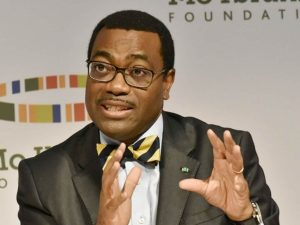By Cynthia Ezekwe
The African Development Bank Group has called for new ways of project preparation and de-risking of projects to mobilise private sector investment at scale for sustainable development.
Akinwumi Adesina, AfDB Group president made the call at the recent Organisation of Petroleum Exporting Countries (OPEC) Fund’s forum in Vienna, Austria, where the delegates, representing multilateral development banks and intergovernmental institutions, noted that businesses and political leaders must do more to stimulate capital deployment from the private sector.
The African Development Bank chief cited the Africa investment forum initiated by the bank and seven partners, as a leading continental platform that is aggregating bankable projects to reduce fragmentation and make it easier to attract institutional investments.
“We’ve got where the private sector is. We’ve got US$ 145 trillion of assets under management and by 2026 it’s going to be there but the issue here is that we need new ways of aggregation to prepare the projects, to de-risk the projects and lower the transaction cost for those deploying capital,” Adesina said.
“The Africa investment forum has become today the premier investment platform to do anything on investment in Africa, and in the last four years, we have been able to leverage about US$ 142 billion of investment interest into energy, water and sanitation, infrastructure, and transport corridors,” Adesina added.
He further stated that the African Development Bank and its partners are creating opportunities for the private sector to invest in agriculture through special agro-industrial processing zones, which are being established across the continent.
“We are bringing in private capital into agriculture that will create opportunities for the private sector to go into rural areas close to where the farmers are producing; they can buy food, they can process food, they can package food, they can export food and have a greater competitiveness for various value chains,” the AfDB chief added.
Rémy Rioux, CEO of Agence Française de Développement, France’s inclusive public development bank, that offers financing and technical assistance to projects that genuinely improve everyday life, called for a consensus in redefining development finance.
“We need a new narrative. We need to work on a framework to finance what nobody is financing – the most vulnerable communities. This is our core mandate, and we must be allowed to allocate part of the precious concessional resources to mobilise, to lower emissions, to go the private way,” Rioux said.
Frannie Leautier, expert chair of the Independent Review of Multilateral Development Banks’ Capital Adequacy Frameworks, outlined areas that her committee identified to maximise the impact of their capital, which includes recognizing callable capital as a powerful instrument of shareholders’ commitment; adopting more financial innovations in capital deployment; enhancing dialogue with credit agencies; and undertaking reforms to enhance transparency.
Also, Prime Minister Lotay Tshering of Bhutan commended multilateral development banks for their support, particularly for vulnerable and low-income countries.
Global development financiers that attended the recent OPEC Fund’s forum in Vienna, Austria, pledged a strong commitment to remodel their investments to support green projects at scale.
Additionally, Abdulhamid Alkhalifa, OPEC fund director general highlighted the need for development financiers to remodel their operations to attract other resources to close the huge finance gap.








